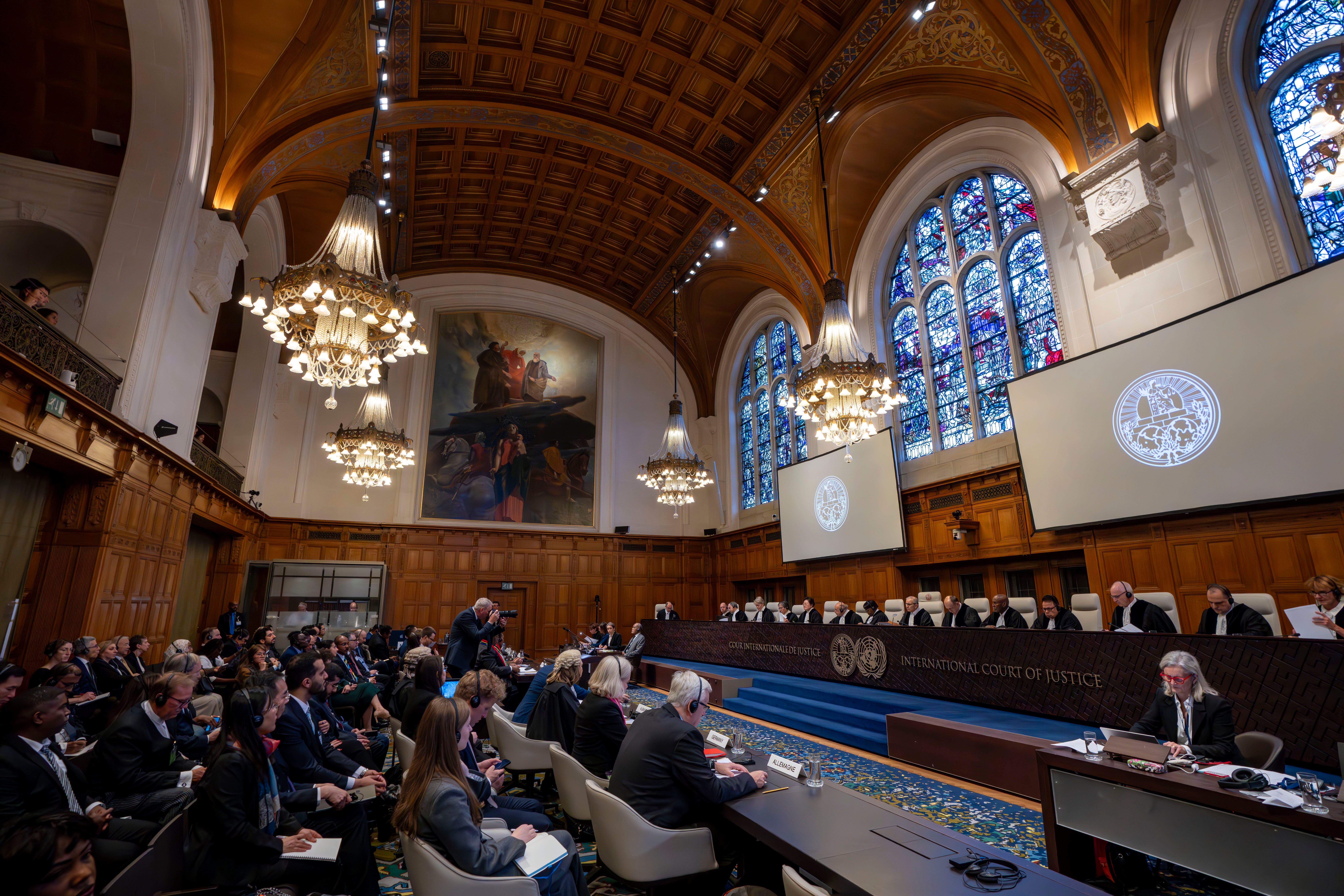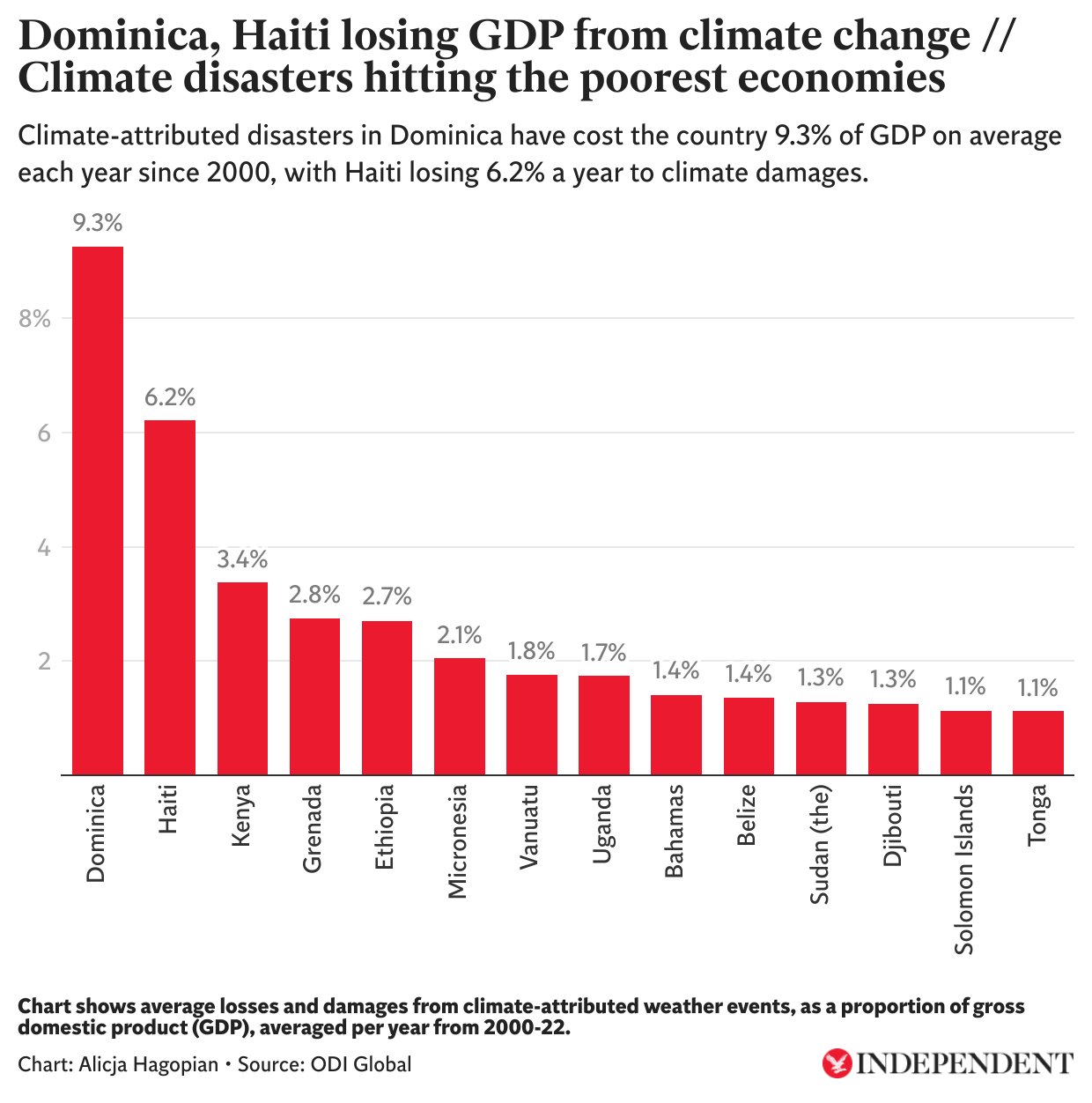The world’s top court has made it easier for governments to be held legally accountable for failing to tackle the climate crisis – in an a move that experts say will have profound implications for climate-related lawsuits.
In its long-awaited legal opinion – requested by small island nations facing existential threats from sea level rise – the International Court of Justice (ICJ) said states have binding obligations to act on climate change under international law, and failing to do so could constitute a “wrongful act”.
In an era of climate science denial and at a time when the United States, one of the world’s biggest polluters, is retreating from climate action under Donald Trump, ICJ judge Yuji Iwasawa called the climate crisis an “urgent and existential threat” and said that greenhouse gas emissions are “unequivocally caused by human activities which are not territorially limited.”
Sir David King, chair of the Climate Crisis Advisory Group (CCAG) and former UK scientific adviser, called it a “moral reckoning”, while former UN human rights chief Mary Robinson called it a “turning point”.
But experts also note that the ICJ’s opinion is not itself legally binding. So what does this actually mean in real terms? Could countries that are suffering the most from the impacts of the climate crisis now sue others – developed nations in the West – that have benefited the most from the historic burning of fossil fuels?
Experts say the most immediate impact of the ICJ opinion will be seen in thousands of climate cases currently being heard across the world.
Joie Chowdhury, senior attorney at the Center for International Environmental Law (CIEL), said the ICJ opinion provides “a clear legal blueprint to hold major emitters accountable”.
“We will see this used as persuasive authority in domestic and regional courts, and it could also form the basis of new state-versus-state litigation,” she said. She added that courts around the world already use ICJ rulings as persuasive authority and will likely cite this latest opinion when interpreting binding law within their own jurisdictions.

Yet it is also clear that one of the most significant possibilities raised by the ICJ ruling is the potential for international legal action between states. Small island nations and African countries – already suffering from the withdrawal of international aid funding – and which have contributed the least to global emissions, could now explore legal action against larger polluters.
While litigation between states is complex and expensive, Chowdhury said the court’s ruling has “laid the legal pathway” for such cases.
“If major polluters do not adjust their conduct based on the court’s very clear guidance on what is permissible and what is not, absolutely, they can be sued. This will depend on jurisdictional issues and other technical criteria, but we may well see cases at the ICJ or other forums,” she said.
That opens the door to legal action over exported emissions, fossil fuel subsidies, or licensing of polluting projects by one state that affects another’s territory or citizens.
More than 2,600 climate-related cases have already been filed globally, against governments, fossil fuel companies, or both, ranging from youth-led lawsuits in Europe to frontline communities seeking compensation for damages.
Chowdhury says the outcome could “supercharge climate litigation” with more cases coming up against governments and polluters.
The court explicitly stated that climate-destructive conduct includes not just emissions but policy-making, licensing and subsidies that fuel the crisis. In other words, governments can now be held responsible if they fail to regulate or curb emissions-intensive industries.

One key section of the judgment states: “Failure of the state to take appropriate action to protect the climate system from GHG emissions including through fossil fuel production, fossil fuel consumption, the granting of fossil fuel exploration licenses, or the provision of fossil fuel subsidies may constitute an internationally wrongful act.”
Chowdhury called the opinion “one of the most consequential legal rulings of our times, just because of the scope of the issues it covers”.
“The ICJ has now drawn a legal red line: continuing harmful conduct, including licensing fossil fuel exploration or failing to cut emissions, is not just dangerous – it could be unlawful.”
“This puts the fossil fuel industry on notice,” Chowdhury said. “It establishes that allowing these activities without proper mitigation or phaseout plans may amount to a breach of international law.”
The 500 page long opinion also touched upon a crucial question central to the survival of small island states: If global sea level rise swallows their land, do they still have the right to be called a state?
The ICJ said the disappearance of one element of a state, such as territory due to rising seas, does not undermine its legal statehood.
This offers powerful support to low-lying countries like Tuvalu and Vanuatu who have been exploring legal remedies to protect their sovereignty and maritime rights.
During the hearings, held in December last year, the court heard testimonies from almost 100 countries and 12 international organisations. Countries like Tuvalu and Zambia used their time before the court to detail the existential threats posed by sea-level rise and climate-linked drought.
“Tuvalu will not go quietly into the rising sea,” its delegation told the court.
In the decade up to 2023, sea levels rose by a global average of around 4.3 centimetres (1.7 inches), with parts of the Pacific rising higher still. The world has also warmed 1.3 degrees Celsius (2.3 Fahrenheit) since preindustrial times because of the burning of fossil fuels.

The ICJ ruling could also significantly influence how countries negotiate new emissions targets, finance pledges and loss and damage mechanisms at the next UN climate summit in Brazil.
Andreas Sieber, associate policy director at 350.org, said the ruling “raises the stakes” for the upcoming round of negotiations.
“As we head into COP30, this ruling raises the stakes, this is not the time for vague pledges, it’s time to start delivering real, legally grounded climate action. That means NDCs must collectively add up to this threshold,” he said.
Chowdhury said the ruling dismantles one of the most common arguments used on climate action by powerful nations.
“A major approach big players take is to say, ‘The Paris Agreement is the only treaty that matters, and it doesn’t require us to do very much.’ But the court said unequivocally that multiple and complementary legal sources, from human rights law to the Law of the Sea, all apply, and there are binding obligations to act,” she said.
The ruling could also help unlock progress on climate finance and loss and damage – areas where negotiations have often stalled. Small island states, for example, have long demanded clearer legal backing for financial support and reparations from rich polluters.
The ICJ said that countries must act with the “highest possible ambition” to limit warming to 1.5C.
Beyond litigation, the ruling affirms that climate justice is inseparable from human rights. It found that climate change-induced displacement, harm to health, and sea-level rise all trigger protections under existing law.
“This is about survival, dignity, and justice,” Chowdhury said. “The ICJ has clarified what the law already requires – and now it is up to governments, courts, and communities to make that law real.”
This story is part of The Independent’s Rethinking Global Aid series




